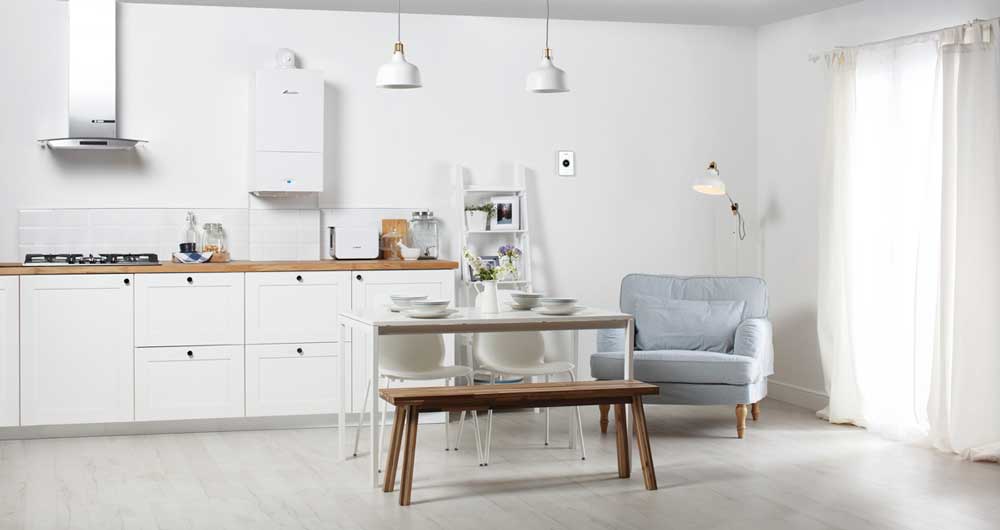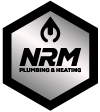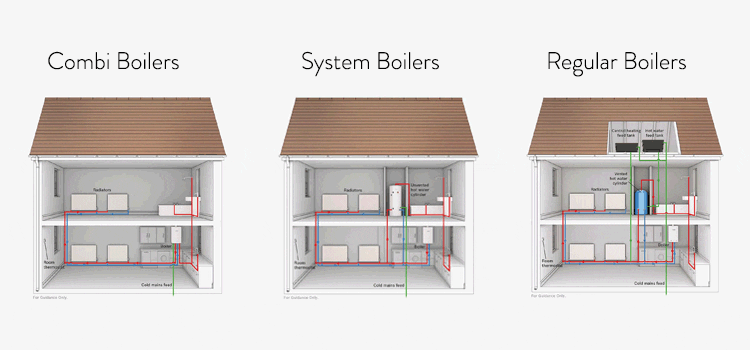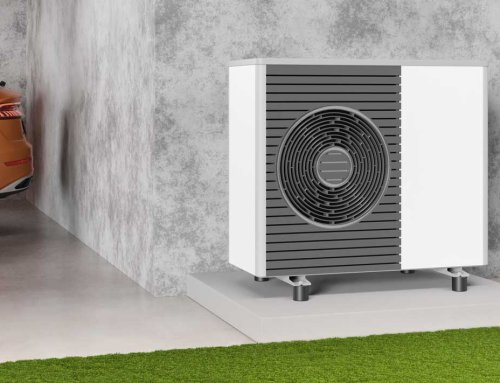Quick Navigation
The different types of gas boilers that are available all have the same purpose – to keep your home warm and provide you with hot water. The range of types of gas boilers that exist is due to the needs of people and buildings at the time they were designed, along with the technology that was available.
As time has gone on, older boilers have worn out and been replaced by newer boilers, but the replacement has often been like-for-like. Technological advancement has allowed for the creation of combi boilers, and while combi boilers are highly efficient they are not the only type of boilers that are available today.
Across Ireland, there are homes that have had new combi boilers installed within the last few months, while other homes have had new conventional boilers installed this week. In contrast, there will be homes that have had the same boiler for decades – and it’s certainly time to get those boilers replaced with something more efficient!
The progress in technology means that a boiler built today is more efficient than the same kind of boiler built 10 years ago. Add in the fact that boiler performance decreases over time with use, and you’ll see that the older your boiler is, the more likely it is to need to be replaced.
Here are some of the most common types of gas boilers in use in Ireland today.

The Types of Gas Boilers Found in Ireland
In the majority of homes and businesses, one of the following types of gas boilers will be found.
Conventional boiler
A conventional boiler system (also known as an open vent boiler system) uses a cylinder and a tank. The tank contains cold water, while the cylinder stores water that has been heated. The cylinder is insulated to help retain the heat.
Conventional boilers provide hot water and heat (through your central heating system incorporating radiators).
System Boiler
A system boiler is similar to a conventional boiler system but does not require a water tank. In a conventional boiler system, the water tank is used to feed water to the hot water cylinder and to keep the radiators full of water.
System boilers take their water feed directly from the mains cold water supply. The water is subsequently heated and stored in the cylinder.
System boilers are sealed systems that can increase energy efficiency and allow the use of condensing technology (see below).
Combi Boiler
Many people consider a combi boiler to be the best type of boiler due to its convenience. A combi boiler does not require a tank or a cylinder and heats water on demand for central heating and for use through your taps.
This means that combi boilers use the least amount of space possible and can always provide hot water.
Oil boiler
Gas boilers provide a convenient way of heating water – the ignited gas provides heat that is used to increases the temperature of the water as it passes through the boiler. Unfortunately, not every home is connected to a gas supply, which makes using a gas boiler impossible. An alternative is to use an oil boiler (also known as an oil-fired boiler).
An oil tank is installed at the location of the property and the oil is fed to the boiler where it is ignited and used to heat the water. As the oil is stored at the location of the boiler rather than fed to it from a remote location, extra space is needed to facilitate the tank. There are also a number of boiler safety rules that need to be followed to ensure that the oil boiler is used in a safe manner.
Condensing Boiler
There are no types of heating boiler that are 100% efficient as heat is always lost during the process. The most common cause of this can be the escape of hot gases through the flue. A condensing boiler uses this escaping heat to warm the water that is returning to the boiler from the central heating system, which means less fuel is needed to keep the water at the right temperatures.
Conventional boilers and combi boilers can be condensing or non-condensing, with modern boilers all tending to be condensing boilers to improve efficiency and lower the cost of your heating.
What is a Combi Boiler? Why Are They Popular?
A combi boiler, more properly called a combination boiler, is a type of boiler that delivers hot water on demand. They provided a combination of central heating and hot water from a single compact boiler.
They are popular for numerous reasons – the compact size gives you more space in your home, the hot water on demand is a significant advantage over systems that need to preheat and store hot water (especially if your water usage pattern changes), and they are highly efficient.
Water is not heated unnecessarily, which means that under certain usage patterns a significant amount of money can be saved. If you only need to wash your hands, a conventional boiler will have already heated enough water for several baths, whereas a combi boiler will only heat the water you need to wash your hands with.
What is the Best Type of Boiler?
The best type of boiler is the one that is most suited to your needs and the needs of the other people in the building. In a home setting, this will be your family, whereas businesses may need to account for both their staff and customers.
Most situations will benefit from using a combi boiler, but low water pressure or the number of people using hot water simultaneously may mean another type of boiler is most suitable. The simplest way to guarantee that you choose the right kind of boiler for your home or office is to contact a qualified and professional team of plumbers.
NRM Plumbing, Heating and Gas Boiler Replacement‘s experience will allow us to guide you to the right choice, giving you heating and hot water when you need it at a price that fits your budget.
Don’t forget with the magic of technology, you can remotely turn on your heating and have the whole house warmed up by the time you get in. Read our blog post for more info: >>> What are the smart heating controls Ireland recommends?







